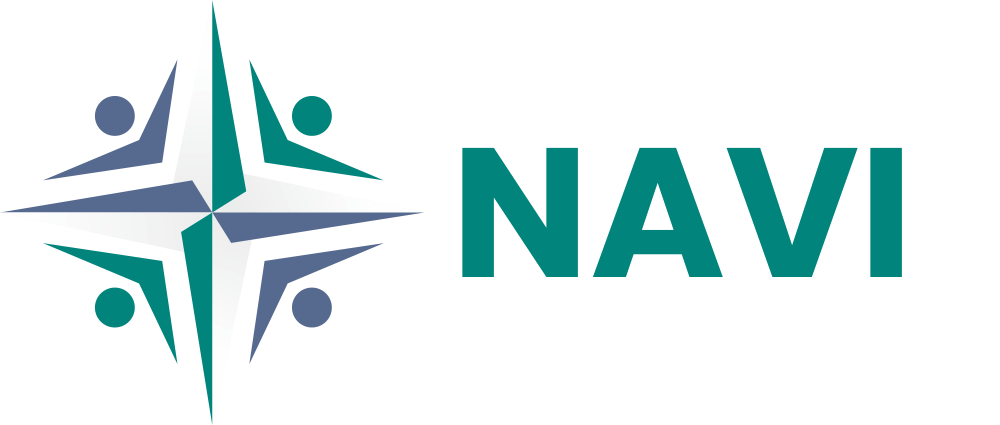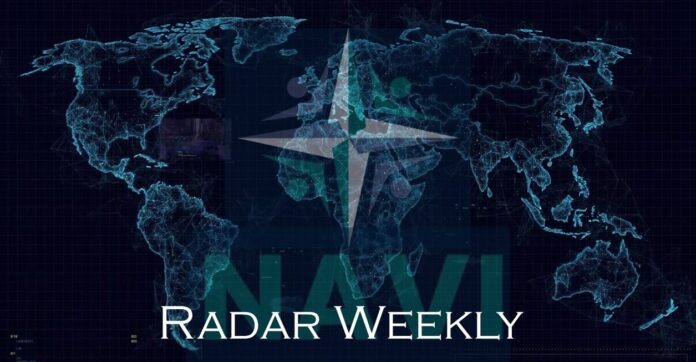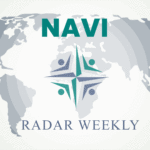Iran vows revenge after strike it blames on Israel demolished consulate in Syria |Euronews
Euronews with AP | 01.04.2024

The Iranian military adviser Mohammad Reza Zahedi killed in the air strike led the elite Quds Force in Lebanon and Syria until 2016.
Iran and one of its key proxies vowed on Tuesday to respond to a strike widely attributed to Israel that demolished Iran’s consulate in the Syrian capital of Damascus.
It was not clear if Iran would respond itself, risking a dangerous confrontation with Israel and its ally the United States
The attack killed seven people, including two Iranian generals and five officers, Syrian and Iranian officials said on Monday.
It was not clear if Iran would respond itself, risking a dangerous confrontation with Israel and its ally the United States, or if it would continue to rely on proxies, including Lebanon’s Hezbollah militia and Yemen’s Houthi rebels. Read more…
Focus Point: Regional Security- Transatlantic Security-Europe
Europe is divided on nuclear power: Which countries are for and against it? | Euronews
Rosie Frost | 01.04.2024

As 30 global leaders and delegations meet in Brussels to promote nuclear energy, the role of nuclear power continues to divide Europe.
Though Europe remains divided in its approach to nuclear power, world leaders were united in Brussels in March for the first-ever Nuclear Energy Summit.
Delegations from more than 30 countries gathered for the event next to the iconic Atomium building – a monument itself designed to uphold the peaceful use of nuclear energy.
As a third of the EU’s currently operating nuclear reactors approach the end of their lifecycle in 2025, the future of the energy source isn’t so easily settled.
High-level attendees have a similarly pro-nuclear stance, gathering to highlight the role of nuclear energy in reducing the use of fossil fuels, enhancing energy security and boosting economic development. The summit follows an official call at COP28 in Dubai last December to accelerate nuclear energy alongside other low-carbon energy sources.
But with protests from environmental campaigners such as Greenpeace and key anti-nuclear European powers such as Germany notably absent from the event, the nuclear energy debate continues to divide the continent. And, as a third of the EU’s currently operating nuclear reactors approach the end of their lifecycle in 2025, the future of the energy source isn’t so easily settled.
So, why is nuclear power such a divisive topic in Europe? Read more…
Focus Point: Regional Security- Africa
Why Africans hold the future of global democracy in their hands | Atlantic Council
Rama Yade | 02.04.2024

By the end of 2024, the face of political Africa will—theoretically—no longer be the same. With nineteen elections scheduled this year, the continent will see presidents leave who were elected more than ten years ago (in Senegal and Ghana), uncertain civilian transitions (in Chad, Mali, and Burkina Faso), high-stakes elections (as in South Africa), and strongmen hanging on (in Tunisia and Rwanda). This volatility, combined with the continent experiencing a wave of coups d’état, makes many observers pessimistic about a decline of the democratic ideal.
This “democratic winter” is not unique to Africa.
In the United States, according to Gallup, only 28 percent of Americans—a record low, fewer even than in the aftermath of the attack on the Capitol on January 6, 2021—are satisfied with the way their democratic system works.
In France, two in five voters dream of an unelected strongman at the head of the country. It is not surprising that the value of democracy is also disputed in Africa, and that arguments against it take the form of claims to national sovereignty and are mainly directed against the former colonial powers.
Wherever recent coups have taken place, the putschists have publicly rejected the influence of former colonial powers (as in the Sahel region with France) or Western institutions (as in Sudan, where General Abdel Fattah al-Burhanused the structural reforms inspired by the World Bank to justify his coup in October 2021).
Coup leaders have accused the previous governments of having installed falsely democratic regimes, which they claim were weak and responsible for the persistence of underdevelopment. In Niger, President Mohamed Bazoum is still being held against his will, accused by a military junta of having had “exchanges” with “foreign heads of state” and “heads of international organizations.”
How has the concept of democracy, at least in terms of aspiration, become so divisive that its rejection is no longer even taboo? No international conference lacks African putschists who have not been elected by anyone claiming their legitimacy to take power by force with the cheers of their supporters. While some of the allegedly “spontaneous” demonstrations in the streets they refer to are organized, these events resonate deeply in African opinions, especially among the younger generations.
These are poor excuses, not to mention that there is something deeply insulting about suggesting that Africans do not deserve to choose their leaders and, therefore, to live freely. Besides, why should anyone believe that democracy is only a Western concept? Read more…
Focus Point: Regional Security- Transatlantic Security-Europe
Germany, France and Poland: This moment may define our children’s future | Politico
Annalena Baerbock, Stéphane Séjourné and Radosław Sıkorskı | 03.04.2024

Annalena Baerbock -the federal minister for foreign affairs of Germany, Stéphane Séjourné-the minister of Europe and foreign of affairs of France and Radosław Sikorski-the minister of foreign affairs of Poland wrote.
We are supporting Ukraine to defend our freedom and security — but we are also investing in our own strength in Europe. We should make no mistake: Today, Ukraine is under attack — tomorrow, it may be some other part of Europe. And Russia will not cease its aggressive and imperialist politics for the foreseeable future.
This is why European allies should shoulder their fair share of NATO’s collective burden and demonstrate readiness to take more responsibility for Europe’s defense.
The enduring transatlantic bond remains the bedrock of our security, and we Europeans must address some of the most urgent shortcomings that have become painfully obvious during the past months and years: capability gaps, the readiness of our forces, production capacity, logistics, standardization and interoperability.
And on NATO’s 75th anniversary, we stand convinced: Freedom and security for the years to come require a modern and forceful transatlantic alliance.
As Europeans, we are ready to do our part. Read more…
Focus Point: Security and Defense Policy- Russia-Ukraine War
Russian military ‘almost completely reconstituted,’ US official says | Defense News
Noah Robertson | 03.04.2024

Russia has rebuilt its military after suffering enormous losses during its invasion of Ukraine, according to a U.S. State Department official. “We have assessed over the course of the last couple of months that Russia has almost completely reconstituted militarily,” said Deputy Secretary of State Kurt Campbell at an event hosted by the Center for a New American Security.
Campbell’s assessment seems to contradict those of the Pentagon and America’s allies in Europe.
At a meeting of countries that support Ukraine late last month, Secretary of Defense Lloyd Austin said that Russia had suffered more than 315,000 casualties during the war.
With a drop in American aid, leading to ammunition shortages on Ukraine’s front lines, Russian forces have advanced. But those too have been costly, the Pentagon has said.
In an interview earlier this year, the chair of Lithuania’s national security committee estimated it would take Russia between five and seven years to reconstitute its forces for a full-scale war. Read more…
Focus Point: Regional Security- Transatlantic Security- NATO
NATO marks 75th anniversary as foreign ministers meet in Brussels | NATO
NATO | 04.04.2024

❝NATO is bigger, stronger, and more united than ever❞ — NATO Secretary General Jens Stoltenberg
Foreign Ministers gathered at NATO Headquarters on Thursday (4 April 2024) to mark 75 years since the signing of the Alliance’s founding document, the North Atlantic Treaty. Since 1949, the Alliance has ensured peace, democracy and prosperity for its members, now counting 32 Allies and one billion people on both sides of the Atlantic.
This year’s NATO Day comes just weeks after Sweden joined as the thirty-second member of the Alliance. Read more…
Focus Point: Regional Security- Transatlantic Security-Europe
Spitzenkandidaten: Democratic fix or political charade? | Euronews
Jorge Liboreiro | 04.04.2024 (30.03.2024)

The 2024 elections to the European Parliament promise to give the Spitzenkandidaten system a new chance. But can the grand project survive its inherent shortcomings and contradictions?
The system was introduced in 2014 when the bloc held the first poll after the Treaty of Lisbon entered into force. The exhaustive revision of the foundational text clarified how the president of the European Commission, the most powerful and influential institution, was to be appointed.
The prospective Commission chief undergoes two crucial tests: first in the European Council and second in the Parliament.
The new treaty said that “taking into account the elections to the European Parliament and after having held the appropriate consultations,” EU leaders should select one presidential hopeful, who then has to be endorsed by MEPs in an absolute majority vote. This means the prospective Commission chief undergoes two crucial tests: first in the European Council and second in the Parliament.
Based on this provision, lawmakers came up with the Spitzenkandidaten system under which each political party, from the biggest to the smallest, has to put forward a lead candidate (Spitze means “peak” or “top” while Kandidat is self-explanatory) to preside the Commission. Read more…
Focus Point: Regional Security- Middle East
Palestinians want April vote on UN membership despite US saying peace with Israel must come first | AP
Edith M. Lederer | 04.04.2024

The Palestinians want the Security Council to vote later this month on their revived request for full membership in the United Nations, despite the United States reiterating Wednesday that Israel and the Palestinians must first negotiate a peace agreement. Riyad Mansour, the Palestinian U.N. ambassador, said 140 countries recognize the state of Palestine, and “we believe it is high time now for our state to become a full member at the United Nations.” Read more…
Focus Point: Regional Security- Indo-Pacific
Taiwan earthquake kills at least 9; TSMC plants recovering |Nikkei Asia
Cheng Ting-Fang and Lauly Li | 04.04.2024

A powerful earthquake struck in the ocean near Taiwan on Wednesday morning, killing at least nine people and shaking the island’s critical high-tech industries while briefly triggering tsunami alerts in the Philippines and Japan’s Okinawa.
The quake registered at magnitude-7.2 off the coast of Hualien, according to Taiwan’s central weather administration, which said it was the biggest temblor to hit the island since September 1999. As of Thursday morning, the official death toll stood at nine with 1,038 injured, 93 people trapped and 52 unable to be contacted.
Taiwan’s tech companies were assessing the impact. Taiwan Semiconductor Manufacturing Co., the world’s top chipmaker, said that all personnel were safe but that the company had evacuated some of its factories as a precaution. Read more…
Focus Point: Security and Defense Policy- Russia-Ukraine War
US Secretary of State Blinken insists Ukraine will become a member of NATO | Euronews
Euronews with AP, EBU |05.04.2024

At a conference to celebrate NATO’s 75th anniversary, US Secretary of State Anthony Blinken said Ukraine will join the alliance – and that the purpose of the summit in Brussels was to work toward that membership.
❝We don’t have any plans of having any NATO combat troops inside Ukraine❞— NATO Secretary General Jens Stoltenberg
During the meeting, members of the Alliance praised determination and perseverance of Ukrainians and promised to continue to provide aid for the country.
Yet Secretary General Jens Stoltenberg reaffirmed that the alliance does not consider itself directly involved in the war. “We don’t have any plans of having any NATO combat troops inside Ukraine,” Stoltenberg said.
“The Ukrainians are asking for equipment, for ammunition, for weapons, and we are providing that to Ukraine. That doesn’t make NATO allies party to the conflict, but we support Ukraine in upholding the right for self-defence.” Read more…
Focus Point: Security and Defense Policy- Russia-Ukraine War
Central Bank of Russia’s Foreign Reserves: Let Me Count the Ways…Freeze, Immobilize, Confiscate | Adam A. Banco
Adam A Blanco | Opinion | 07.04.2024

Economic Impact: The West can mitigate the legal risks associated with the confiscation of the CBR foreign reserves without risking the integrity of the rule of law system that underpins Western economies. The EU is concerned that confiscation will result in investors and central banks withdrawing from the Eurozone because the bulk of the confiscation will take place in the Eurozone. Rules-based governments and companies will not be deterred by the confiscation and will continue to invest in the Eurozone and EUR and USD-denominated financial instruments.
Global Currencies: No currency alternative to G7 currencies—particularly USD and EUR—offers the depth of global market liquidity and the utility of transaction settlement and value storage. Russian energy companies are experiencing this firsthand, with billions of CNY and INR stuck in China and India.
Seizure of Western Assets: The EU leaders are concerned the Kremlin will seize Western assets in Russia, but the Kremlin is already de-facto seizing Western assets in Russia. The exit process for Western companies includes a 50% discount on the value of their assets (and that’s value as determined by the Kremlin) and then a contribution of 10% of the proceeds of the sale to the federal budget. Read more…
Focus Point: Regional Security- Transatlantic Security-NATO
NATO turns 75 | NATO
NATO | 07.04.2024

For 75 years, NATO Allies have been working together to keep our people safe and our nations free. This week’s 75th anniversary special edition newsletter is a must-read, featuring our new history podcast and documentary and an animation that will take you on a visual journey across sea, land, air, space and cyberspace.
If you missed it, you can also re-watch the ceremony, catch up on the meeting of 32 Allied Foreign Ministers, or look at the pictures of the document that started it all as our founding Treaty makes its first-ever visit to NATO Headquarters. Read more…
Thank you very much for reading.
The NAVI Research Institute is the research division of NATO Veterans Initiative - NAVI that provides a unique perspective to transatlantic leaders and societies on peace and security through the lens of NATO's founding principles of rule of law, democracy, human rights, and individual liberties. The NAVI Research Institute was officially established by the NAVI Board on July 16th, 2023.


